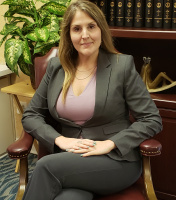Suffolk Family Law Lawyer, Virginia
Sponsored Law Firm
-
 x
x

Click For More Info:
-
Randall, Page, & Bruch, P.C.
28319 Southampton Pkwy Suite B Courtland, VA 23837» view mapDivorce & Family Law Trusted. Creative. Responsive.
Our solid qualifications as individual legal professionals, our well-oiled teamwork and our dedication to our clients’ best interests are hallmarks of our law practice.
800-759-7991
Includes: Collaborative Law, Domestic Violence & Neglect, Paternity, Prenuptial Agreements
Jennifer J Anderson
Divorce & Family Law, Child Custody, Child Support, Adoption, Family Law
Affordable Reliable and Available
Jennifer Sherwood is a practicing lawyer in Hampton Roads Virginia with a focus on Custody Disputes and Consumer Protection.
Cheshire I'Anson Eveleigh
Dispute Resolution, Family Law, Divorce, Child Support
Status: In Good Standing
FREE CONSULTATION
CONTACTJames D. Garrett
Class Action, Family Law, Products Liability, Medical Malpractice
Status: In Good Standing
FREE CONSULTATION
CONTACTKirk David Berkhimer
Family Law, Banking & Finance, Wills & Probate, Government Agencies
Status: In Good Standing
FREE CONSULTATION
CONTACTFREE CONSULTATION
CONTACTFREE CONSULTATION
CONTACT Jack T. Randall Courtland, VA
Jack T. Randall Courtland, VA Practice AreasExpertise
Practice AreasExpertise

